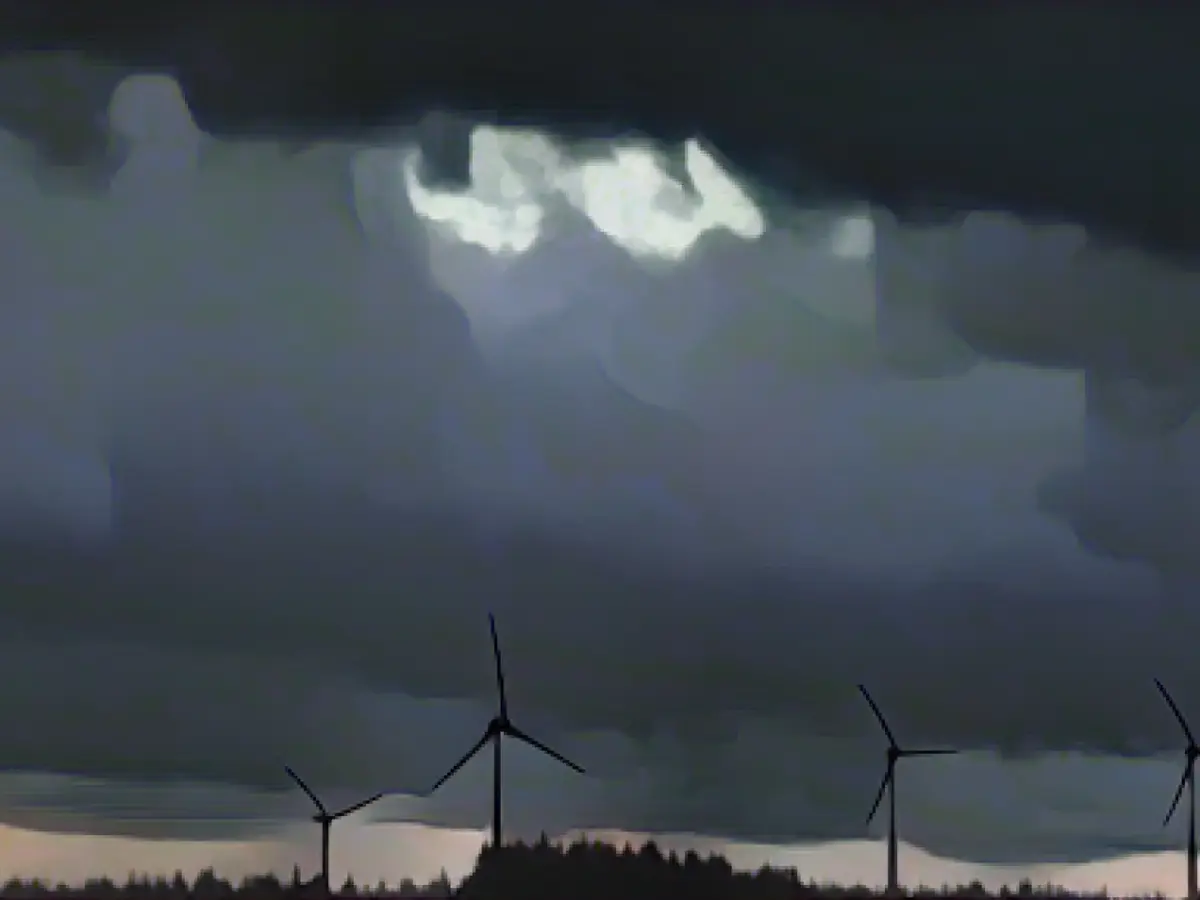Alternative energies - Bavaria's wind power expansion is still not getting off the ground
The expansion of wind power in Bavaria is still not making any progress. In the latest tendering round of the Federal Network Agency, just five of the 165 contracts awarded went to Bavaria. This is according to an evaluation of the results, which was made available to the Deutsche Presse-Agentur in Munich. In total, this involves the construction of ten plants with a capacity of 55.6 megawatts (MW). Half of the plants (27.8 MW) are to be built in the district of Munich. Only Thuringia (45.2 MW), Rhineland-Palatinate (42.2 MW), Saxony (24.8 MW) and Saarland (6 MW) are behind the Free State.
Other federal states performed significantly better in the tendering round. The frontrunners are Schleswig-Holstein (416 MW, 42 awards), Lower Saxony (312 MW, 25 awards), North Rhine-Westphalia (309 MW, 31 awards) and Mecklenburg-Western Pomerania (222 MW, 16 awards). Baden-Württemberg also landed well ahead of Bavaria, the largest federal state in terms of area, with nine awards for 28 turbines with a capacity of 151.2 megawatts.
According to the Federal Network Agency, only two bids in the tendering round had to be excluded from the process due to formal errors - conversely, this means that practically every bid was successful. The next tender round ends in February 2024.
In view of the weak figures, the Bavarian branch of the German Wind Energy Association (BWE) once again called for more speed in the expansion of wind power in Bavaria: "At federal level, the gates for dynamic expansion have already been opened wide. In order for Bavaria to successfully restart wind energy, the state government must now decisively implement these guidelines," emphasized Bernd Wust, State Chairman of BWE Bayern.
"Bavaria remains the largest territorial state with the lowest expansion of wind energy," Wust continued. Although the handbrake on the expansion of wind power has been released with the relaxation of the 10H distance rule, there is still a lack of speed. For example, only six wind turbines were put into operation and ten new turbines were approved in Germany's largest federal state between January and the end of November 2023. The current figures would not meet the expansion target of 1,000 new wind turbines by 2030 agreed in the coalition agreement between the CSU and the Free Voters.
Criticism also came immediately from the Greens: "We are now seeing the dramatic consequences of the irresponsible CSU energy policy, which for a decade was only concerned with blocking, preventing and banning," said Ludwig Hartmann. The CSU had thus robbed the people of Bavaria of the opportunities of a regional energy supply in the hands of the citizens.
In order to accelerate the pace, the state association has compiled various measures in a demands paper that are currently still hindering the expansion. Among other things, the association recommends the faster release of areas for wind turbines by the end of 2025. According to the Wind Area Requirements Act, 1.1 percent of the state's land must be made available for wind turbines by the end of 2027.
The association is also calling for the complete abolition of the controversial 10H distance rain and faster approval procedures. The easing of requirements to date is not sufficient and continues to prevent a clear signal for the necessary transformation and a climate-neutral Bavaria by 2040. In addition, the construction of wind turbines in water protection zones must also be permitted for more wind energy, more citizen participation is needed and areas in the state forests must be allocated immediately.
Information on the expansion of onshore wind energy Information on the tendering round November 23 BWE Bavaria demands paper
Read also:
- A clan member is punished here
- Traffic lawyer warns: Don't talk to the police!
- Will he be convicted as Jutta's murderer after 37 years?
- He also wanted to kill his cousin
- Despite Bavaria being Germany's largest state, it ranks last in wind power expansion, according to the German Wind Energy Association's (BWE) Bavaria branch.
- The CSU, Bavaria's ruling party, has faced criticism for its energy policy, which has been characterized by blocking, preventing, and banning measures.
- Critics argue that the CSU's policies have prevented Bavaria from taking advantage of alternative energy sources, such as wind energy.
- Thuringia, Rhineland-Palatinate, Saxony, and Saarland have outperformed Bavaria in wind power expansion, according to the results of the latest tendering round by the Federal Network Agency.
- Baden-Württemberg, another German federal state, awarded nine contracts for 28 turbines with a capacity of 151.2 megawatts during the same tendering round.
- The Federal Network Agency reported that only two bids in the tendering round were excluded due to formal errors, suggesting that the process was largely successful.
- The BWE Bavaria branch has called for more speed in the expansion of wind energy in Bavaria, citing the coalition agreement between the CSU and the Free Voters' 1,000 new wind turbines by 2030 target.
- To accelerate wind energy expansion in Bavaria, the BWE has proposed various measures, such as faster release of areas for wind turbines and complete abolition of the 10H distance rule.
- The CSU's energy policy has been criticized by the Greens as irresponsible, as it has allegedly robbed the people of Bavaria of opportunities for a regional energy supply and climate-neutral future.
Source: www.stern.de








